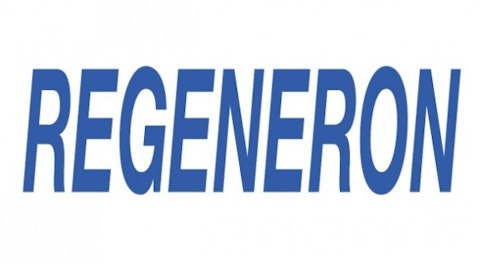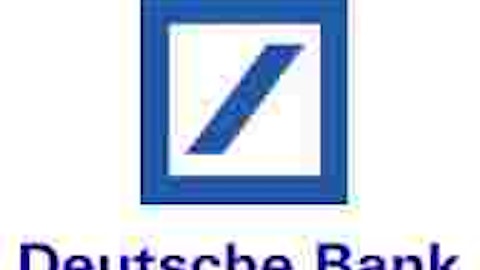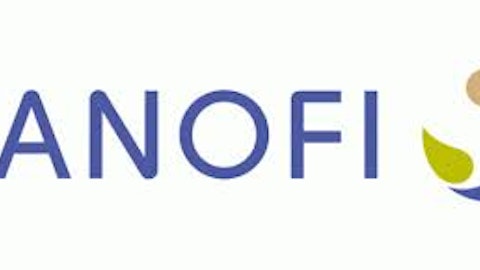More than anything, biotech companies need investors who are true believers in their products. In a sector more governed by future prospects than past fundamental growth, investments from the largest pharmaceutical companies can provide a huge boost of confidence for investors in smaller ones.
One recent example is the story of Regeneron Pharmaceuticals Inc (NASDAQ:REGN) and its major backer, pharma giant Sanofi SA (ADR) (NYSE:SNY). At a health care investor conference in London, Sanofi SA (ADR) (NYSE:SNY) CEO Chris Viehbacher recently stated that his company could increase its stake in Regeneron Pharmaceuticals Inc (NASDAQ:REGN) from 16% to 30%, since the relationship has been “extremely productive.” Those soothing words boosted shares of Regeneron Pharmaceuticals Inc (NASDAQ:REGN) 6% to close at an all-time high on Sept. 13. Should investors follow Sanofi SA (ADR) (NYSE:SNY)’s lead and pick up some shares as well?

Source: YCharts.
The relationship between Regeneron and Sanofi
Regeneron Pharmaceuticals Inc (NASDAQ:REGN)’s primary collaboration with Sanofi SA (ADR) (NYSE:SNY) is Zaltrap, a metastatic colorectal cancer treatment. However, Zaltrap’s future is murky at best. Last year, Memorial Sloan-Kettering Center in New York rejected Zaltrap on grounds that it cost twice as much as a similar treatment, Roche’s Avastin, without any noticeable benefits. Both Zaltrap and Avastin improved the median survival rate by 1.4 months. Sanofi SA (ADR) (NYSE:SNY) responded by halving Zaltrap’s lofty price of $11,000 per month — which merely made it an alternative choice to Roche’s widely accepted treatment. In June, Zaltrap was also rejected in the U.K. for pricing reasons.

Under the current expanded agreement, which started in 2009, Sanofi SA (ADR) (NYSE:SNY) will pay Regeneron $160 million in annual research funding up to 2017. Five antibodies have entered clinical trials already, and the companies have a long-term goal of introducing 20 to 30 more.
Regeneron’s own business model
Most of Regeneron’s revenue comes from Eylea, its treatment for wet age-related macular degeneration, or AMD, which is co-marketed with Bayer AG (ADR) (OTCMKTS:BAYRY). Bayer AG (ADR) (OTCMKTS:BAYRY) holds the rights to market Eylea outside the United States, where profits from future sales will be split in half. Japan is an exception, where Regeneron Pharmaceuticals Inc (NASDAQ:REGN) receives a royalty on net sales instead.
Wet AMD causes the abnormal growth of blood vessels into the macula, and is currently the leading cause of blindness in the elderly. Although Eylea is approved to treat wet AMD as well as macular edema following central retinal vein occlusion, or CRVO, it is still in phase 3 trials for the treatment of diabetic macular edema, or DME, which causes vision loss and blindness in diabetics.
Last quarter, Regeneron’s revenue surged 50.7% year-on-year to $458 million, thanks to strong demand for Eylea. Eylea comprised 99% of total product sales at $330 million, while most of the remaining revenue came from its collaborations with Sanofi and Bayer AG (ADR) (OTCMKTS:BAYRY). Regeneron expects sales of Eylea to hit $1.30 billion to $1.35 billion in fiscal 2013.





